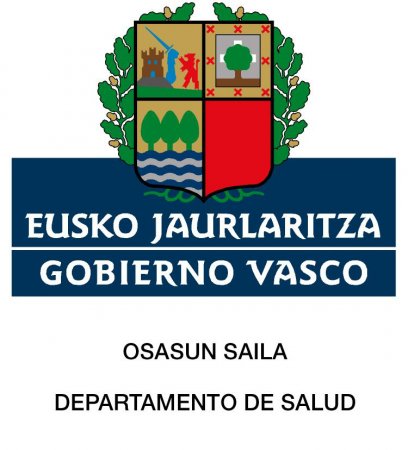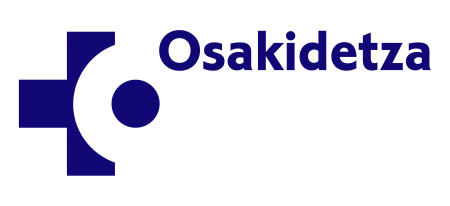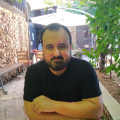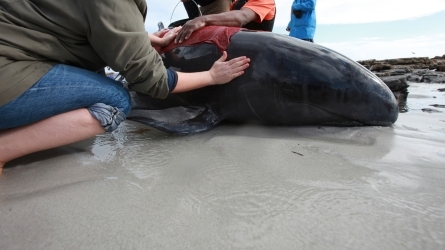
Actualización en el diagnóstico, tratamiento y manejo del síndrome de Dravet
Este curso online en directo tendrá lugar los días, 29 junio, 6 julio y 13 julio.
Description
El síndrome de Dravet (SD), también conocido como Epilepsia Mioclónica Severa de la Infancia (SMEI), es una enfermedad neurológica grave e incapacitante de origen genético. Entre el 80% y el 90% de pacientes afectados presentan una mutación en el gen SCN1A. Con una incidencia de 1 entre 16.000 nacimientos, el SD se encuadra en el grupo de enfermedades poco frecuentes (1/2.500). En España se estima que debe haber alrededor de 450-500 pacientes correctamente diagnosticados con SD. Sin embargo, los datos de prevalencia de la enfermedad sugieren que este número debe ser superior a los 1.500.
Uno de los síntomas más visibles en el SD es la epilepsia, la cual comienza a manifestarse entre los 4 y los 12 meses de vida. Las crisis epilépticas, en un primer momento, pueden llegar a confundirse con crisis febriles, habituales en muchos niños y niñas. Pero, a diferencia de las crisis febriles, las crisis iniciales en el SD suelen ser prolongadas y difíciles de controlar, derivando en estados epilépticos y requiriendo el ingreso de los pacientes en las UCIs. En edades más avanzadas es frecuente la aparición de otros tipos de crisis, el retraso cognitivo se hace evidente y aparecen otros trastornos neurológicos y alteraciones graves de la conducta.
Entre el 15 y el 20 % de las personas con SD fallece prematuramente a causa de la enfermedad. En España existen actualmente ocho Centros, Servicios y Unidades de Referencia del Sistema Nacional de Salud en epilepsia refractaria, donde se podría encuadrar el SD. Sin embargo, el SD es mucho más que una
epilepsia, y su abordaje ha de ir más allá de tratar solo las crisis epilépticas; El SD debe ser manejado desde un punto de vista multidisciplinar, involucrando a profesionales sanitarios de diferentes áreas. Por tanto, no existe ningún centro completamente preparado para la complejidad y multidisciplinariedad que implica el manejo y tratamiento del SD.
El Curso de Verano 'Diagnóstico, tratamiento y manejo del síndrome de Dravet' plantea aspectos esenciales para el correcto abordaje del SD: (1) Descripción de los signos y síntomas del SD y epilepsias relacionadas que pueden facilitar un diagnóstico clínico y genético, (2) Discusión sobre las opciones de tratamiento emergentes para el SD en el contexto del paradigma de tratamiento actual, y (3) Descripción del papel del equipo multidisciplinar en el manejo de los pacientes con SD.
Objectives
Introducir al alumnado en el conocimiento de una enfermedad que, por su condición de poco frecuente, difícilmente estudiarán durante sus años de entrenamiento como futuros médicos.
Adelantarse a la educación que estos estudiantes recibirán durante futuras residencias formativas en centros y unidades docentes acreditadas para la adquisición de competencias profesionales propias de su especialidad.
Introducir o ampliar los conocimientos del alumnado profesional acerca de una enfermedad severa infradiagnosticada y no siempre bien atendida.
Generar el interés del alumnado por trabajar en un futuro con un grupo de pacientes y familias que necesita de profesionales preparados que le proporcione todos los cuidados a su alcance.
Generar a su vez el interés del alumnado por investigar en SD.
Activity directed to
- All public
- University student
- Students not from university
- Teachers
- Professionals
Program
29-06-2023
Registro
Presentation by the Director of the activity
- José Ángel Aibar --- | Fundación Síndrome de Dravet - Presidente
“Signos y síntomas del síndrome de Dravet. Diagnóstico diferencial con respecto a otras epilepsias relacionadas“
- Eulàlia Turón Viñas | Hospital de la Santa Creu i Sant Pau - Coordinadora de la Unidad de Neuropediatría
“Diagnóstico genético del síndrome de Dravet y epilepsias relacionadas“
- Eulàlia Turón Viñas | Hospital de la Santa Creu i Sant Pau - Coordinadora de la Unidad de Neuropediatría
Pausa
“Retos clínicos a la hora de realizar un diagnóstico “
- Ángel Aledo Serrano | Hospital Vithas Madrid La Milagrosa - Neurólogo y Epileptólogo
“Síntesis“
- José Ángel Aibar --- | Fundación Síndrome de Dravet - Presidente
06-07-2023
“Presentación por parte de la Dirección de la actividad“Presentation by the Director of the activity
- José Ángel Aibar --- | Fundación Síndrome de Dravet - Presidente
“Enfoques actuales en el tratamiento del síndrome de Dravet“
- Vicente Villanueva Haba | Hospital Universitario y Politécnico La Fe - Jefe de la Unidad de Epilepsia Refractaria y del Programa de Cirugía de Epilepsia
“Datos más recientes sobre la eficacia y seguridad de nuevos fármacos. Terapias avanzadas en investigación para el síndrome de Dravet. Papel del paciente en el desarrollo de nuevos tratamientos“
- José Ángel Aibar --- | Fundación Síndrome de Dravet - Presidente
Break
“Desafíos clínicos y tratamiento de emergencia“
- Julián Lara Herguedas | Hospital Universitario Puerta de Hierro - Médico Adjunto de Pediatría
Synthesis
13-07-2023
Presentation by the Director of the activity
- José Ángel Aibar --- | Fundación Síndrome de Dravet - Presidente
“Impacto del enfoque de equipo multidisciplinar en la calidad de vida y bienestar del paciente y su familia“
- Natividad López Langa | Asociación Nacional e Internacional de Enfermería Escolar (AMECE). - Presidenta
“El papel de las organizaciones de pacientes en el apoyo a las familias“
- José Ángel Aibar --- | Fundación Síndrome de Dravet - Presidente
Break
“Función de los miembros del equipo central y otros profesionales“
- Eulàlia Turón Viñas | Hospital de la Santa Creu i Sant Pau - Coordinadora de la Unidad de Neuropediatría
Synthesis
Closing session
- José Ángel Aibar --- | Fundación Síndrome de Dravet - Presidente
Directors
Jose Ángel Aibar has an international background in both electronics and aerospace engineering, and holds a management position in a leading technology company. One of his children has Dravet syndrome, which gave him the motivation to become involved with the Dravet Syndrome Foundation Spain, where he serves as president and chief executive officer since June 2018.
Speakers
Jose Ángel Aibar has an international background in both electronics and aerospace engineering, and holds a management position in a leading technology company. One of his children has Dravet syndrome, which gave him the motivation to become involved with the Dravet Syndrome Foundation Spain, where he serves as president and chief executive officer since June 2018.

Ángel Aledo Serrano
Ángel Aledo-Serrano MD, PhD is a neurologist and epileptologist, director of the Vithas Madrid Neuroscience Institute. His main focus of clinical and research work is in the area of neurogenetics, precision medicine and developmental and epileptic encephalopathies, including Dravet syndrome and other sodium channelopathies, MOGHE, CDKL5 deficiency disorder or SYNGAP1 encephalopathy, among others. He is very active in the social and educational aspects of DEEs, with a science dissemination platform in social media (@AledoNeuro).

Julián Lara Herguedas
Hospital Puerta de Hierro Majadahonda
Víctor Soto Insuga is a neuropaediatrician, accredited by the Spanish Society of Neuropaediatrics (SENEP). He carries out his healthcare and research work in the Neurology Service of the Hospital Niño Jesús, belonging to the Epilepsy Unit. He holds a PhD cum laude from the Universidad Autónoma de Madrid, having presented his thesis on genetics and epilepsy. He is a Medical Specialist in Sleep (accredited by the CEAMS). Julián Lara is an Assistant Neuropediatrics Physician at the Puerta de Hierro University Hospital – Majadahonda in Madrid. Specific Training Area in Pediatric Neurology granted by the Spanish Society of Pediatric Neurology. Own Title Specialist in Childhood Disability from the Complutense University of Madrid. Member of the Scientific Advisory Committee of the Dravet Syndrome Foundation. Currently, he is coordinator of the Epilepsy Group of the Spanish Neuropediatric Society (SENEP). In recent years he has promoted the development of different integration projects in epilepsy and other neurological diseases.

Natividad López Langa
Especialista en Salud Mental. Ahora jubilada, Supervisora de Enfermería del Centro Público de Educación Especial María Soriano durante gran parte de su carrera. Presidenta de la Asociación Nacional e Internacional de Enfermería Escolar (AMECE).
Eulàlia Turón Viñas
EDUCATIONAL BACKGROUND Degree: Medicine and Surgery from the University of Barcelona (UB) (1996-2002). Specialist degree: Pediatrics and its specific areas. Hospital Sant Pau (2003-2007). Master in Neuropediatrics by the University of Barcelona. Sant Joan de Déu Hospital (2008-2010). Doctorate in the Pediatrics, Obstetrics and Preventive Medicine and Public Health program at the Universitat Autònoma de Barcelona (UAB) September 2020. Epilepsy Fellowship at Hospital del Mar (2020 – 2021) PROFESSIONAL EXPERIENCE Pediatrician specialized in Neuropediatrics and Pediatric Critical Care. Management of pediatric neurocritical patient. Coordinator of the Neuropediatrics Unit at Hospital Sant Pau. Coordinator of the Epilepsy Unit’s pediatrics section at Hospital del Mar – Hospital Sant Pau Associate Professor of the Degree of Medicine of the UAB, of the Master of Neuropsychology of the UAB - Hospital Sant Pau and of the Master of Pediatric Nursing of the UB - Hospital Bellvitge.
Vicente Villanueva Haba
Vicente Villanueva MD, PhD, is a neurologist in Hospital La Fe, Valencia, since 2004. Since 2005 he also works at the La Fe Multidisciplinary Epilepsy Unit, where he is Head of the Refractory Epilepsy Unit and Epilepsy Surgery Programme. He serves as a representative of the European Reference Network Epi-CARE and is a member of the ILAE Intellectual Disability Task Force. He is an Associate Professor of Neurology at the Univ. of Valencia since 2017. Dr Villanueva undertook his training at Fundación Jiménez Diaz in Madrid (ES), Epilepsy Center of Univ. of Alabama (US), Epilepsy Center of New York Univ. (US) and Hôpital Saint-Vincent de Paul in Paris (FR). His current research interests include refractory epilepsy, video-EEG monitoring, and epilepsy clinical trials and surgery. Vicente is a member of the EEG board and the Epilepsy Guidelines Board of the Spanish Neurological Society, which awarded him in 2014 with the Scientific Prize in epilepsy and author of more than 100 articles about epilepsy.
Registration fees
| Live online | Until 29-06-2023 | Until 06-07-2023 |
|---|---|---|
| 10,00 EUR | - | |
| 2,50 EUR | - | |
| 0 EUR | - | |
| - | 0 EUR |
Venue
29 junio-6 julio-13 julio
Online en directo
Live online
Sustainable development goals
Agenda 2030 is the new international development agenda approved in September 2015 by the United Nations. This agenda aims to be an instrument to favour sustainable human development all over the planet, and its main pillars are the eradication of poverty, a reduction in equality and vulnerability and fostering sustainability. It is a unique opportunity to transform the world up to 2030 and guarantee human rights for all.








